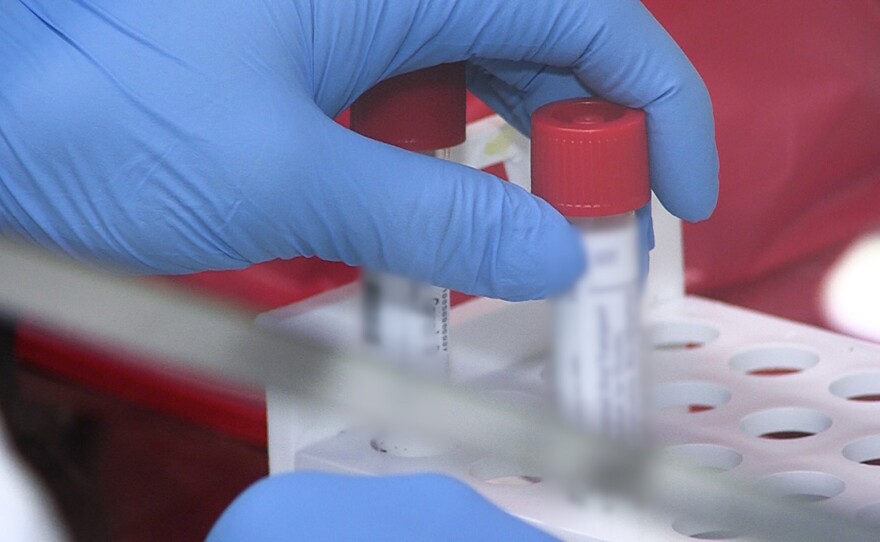As California tries to ramp up coronavirus testing as an essential step toward lifting stay-at-home restrictions, it faces significant hurdles that have been a problem from the start.
Bottlenecks in the supply chain. Delays getting results. Areas without testing sites.
Despite those challenges, Gov. Gavin Newsom laid out ambitious goals to quadruple current testing in the coming months.
Newsom expects the state to go from offering 16,000 tests a day, as of Wednesday, to 25,000 per day by May 1.
He won't consider reopening businesses at large until 60,000 to 80,000 people are tested a day, which could be months from now, and an "army" of workers can begin tracking down everyone who may have been infected by someone who tests positive.
Health experts say this is the most prudent path to normal without risking an explosion of new cases by prematurely reopening.
"Let's see whether he can deliver," said Karin Michels, an epidemiology professor at the University of California, Los Angeles.
"If tomorrow we switch to 70,000 (tests) then it still takes 20 months to test everybody once," Michels said, referring to all 40 million Californians. "If you tell me 25,000 by the end of the month, well the end of the month is next week. They need to go higher."
Testing has been problematic across much of the world and got a slow start in the U.S. due to a glitch with the first test developed by the U.S. Centers for Disease Control and Prevention. A bigger problem has been demand for limited supplies, along with the protective gear for people administering the tests.
Newsom said if supplies were not a problem, the state could now conduct 95,000 tests a day, far greater than his "stretch" goal that could be months away.
Despite the limited capacity, California became the first state in the U.S. to relax testing guidelines by the CDC when it prioritized people without symptoms. The state said authorities should test people in "high-risk settings" even if they don't have symptoms, a change aimed at health care workers, prisoners and the homeless.
RELATED: A Combination Of Tests Key To Preventing Future Flare-Ups of COVID-19
Newsom's projections for testing are realistic if supply chain issues end, said Dr. David Lubarsky, the chief executive of UC Davis Health. He pushed back on recent suggestions from the White House that there is an abundance of tests.
"It boggles my mind to turn on CNN every day and listen to the federal government's coronavirus task force keep saying it's no problem, more tests than you possibly need, everything is great, it's the states' fault," Lubarsky said. "I'm lucky that I can do 500 a day when, really, if I just had a little cooperation, I could do 2,500 a day."
While San Francisco reported that it had enough protective equipment and materials Wednesday to test everyone with symptoms and people who may have been infected by others, supplies remain unreliable to extend tests to people in homeless shelters.
"Day to day or week to week, the supplies that we order, it's unclear whether they will arrive, when they will arrive or whether they will be canceled," San Francisco Health Director Dr. Grant Colfax said.
There have been shortages of swabs for samples and chemicals for processing and, at times, long lags in delivering results.
Even as Newsom touted a promise from President Donald Trump for 100,000 swabs this week, 250,000 next week and more the following week, he cautioned that as one supply problem is solved others arise, from vials used to transport the samples to the time it takes to get results.
"Is it four days, seven days, 10 days of backlogs? All of these issues remain dynamic," Newsom said. "This space is one of constant iteration ... so I don't want to suggest definitively that even hundreds of thousands, even millions in the aggregate of swabs will solve ... the testing issues. It will solve the swab issue."
Assessing how many people were infected with COVID-19 was hampered by a backlog. It was taking as long as 12 days to get results from some labs working with Los Angeles County. Just three weeks ago results of nearly two-thirds of the state's roughly 90,000 tests remained unknown because of lab holdups.
Newsom named a task force to speed up and expand testing. More than 465,000 people have now been tested in the state, though processing backlogs remain.
Los Angeles announced alarmingly large numbers of coronavirus cases this week because of a surge of delayed results.
"We're going to continue to see over the next couple weeks some backlog with every daily count that we give you," Los Angeles Public Health Director Barbara Ferrer said Thursday. "But it's not as significant as it was that one day where we had a huge bump. I think it was the day we reported almost 1,300 cases — the vast majority of those were in fact backlog cases."
The county can currently conduct 10,000 to 12,000 tests a day, but some drive-up appointments go unfilled. Ferrer urged anyone with symptoms to get tested.
The county is working to increase testing at medical offices as hospitals ramp up testing capacities, Ferrer said.
Tests are available at 600 sites around the state, but gaps in inner-city "black and brown communities" and rural places remain a problem, Newsom said. He announced that 86 new sites would pop up within days to begin addressing those shortages.





